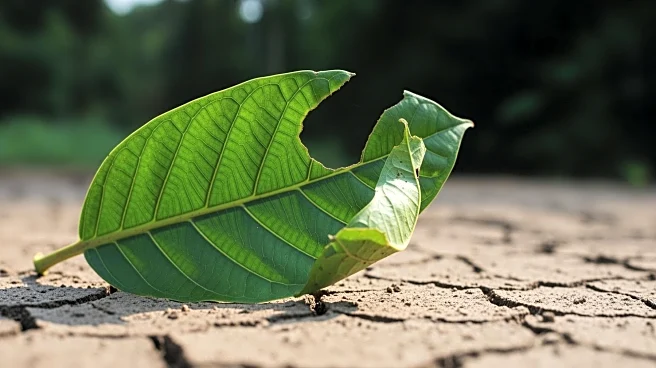What's Happening?
The Amazon rainforest in Brazil is at risk of increased deforestation as efforts to overturn a long-standing ban on the sale of soya grown on deforested land gain momentum. This ban, known as the Amazon Soy
Moratorium, has been credited with curbing deforestation since its implementation. However, powerful farming interests in Brazil, supported by some politicians, are pushing to lift these restrictions, arguing that they hinder economic development.
Why It's Important?
The potential lifting of the Amazon Soy Moratorium could have significant environmental and ecological consequences. The Amazon rainforest plays a crucial role in regulating the global climate and is home to diverse species. Increased deforestation could lead to a tipping point where the rainforest can no longer sustain itself, resulting in severe climate impacts and loss of biodiversity. The situation highlights the ongoing tension between economic development and environmental conservation, with global implications for climate change and sustainability.
What's Next?
As Brazil prepares to open a new railway that could further incentivize deforestation, environmental groups and international stakeholders are likely to intensify their efforts to maintain the moratorium. The Brazilian government faces internal divisions on the issue, with some ministries supporting the ban while others call for its removal. The outcome of this debate will be closely watched by environmentalists and policymakers worldwide, as it could set a precedent for future conservation efforts.
Beyond the Headlines
The debate over the Amazon Soy Moratorium also raises questions about the role of international trade and consumer demand in driving deforestation. Major global food companies and retailers have expressed support for the ban, emphasizing the importance of sustainable supply chains. The situation underscores the need for collaborative efforts between governments, businesses, and civil society to address the complex challenges of environmental protection and economic growth.









